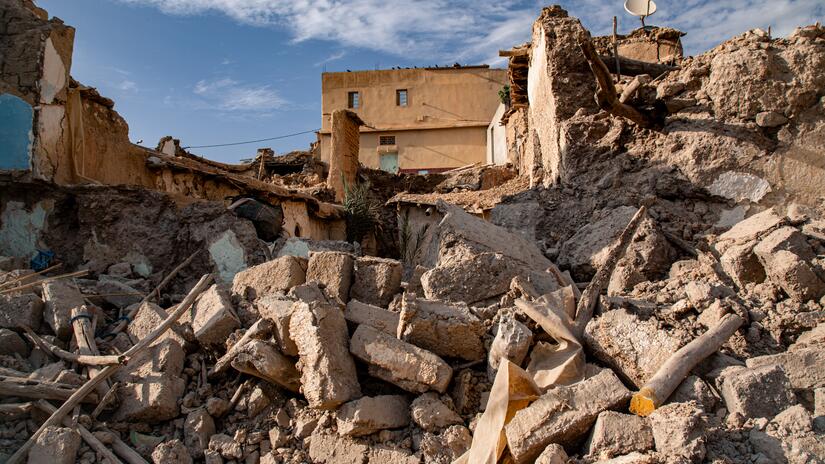Three months after a 6.8 magnitude earthquake hit Morocco on September 8 — killing and injuring thousands of people and causing widespread destruction — the Moroccan Red Crescent is still working to help thousands of people, many of whom are still living in temporary shelters and tents as winter in the Atlas Mountains approaches.
In the immediate aftermath of the quake, Moroccan Red Crescent (MRCS) teams were on the ground immediately, coordinating closely with the IFRC and local authorities to assess the situation, support wth search and rescue and provide help to affected people.
Among other things, MRCS has provided first aid and psychosocial support, helped transport injured people to hospitals, evacuated people from damaged buildings and helped in offering dignified burial management. Other National Societies have also lended a hand as well. With support from, the Qatar Red Crescent, for example, MRCS has distributed tents, mattresses, blankets and kitchen kits in many remote mountain communities.
On 12 September, the IFRC launched an Emergency Appeal for 100 million Swiss francs to scale up the relief efforts of the Moroccan Red Crescent. The appeal followed an allocation of 1 million Swiss francs from the IFRC's Disaster Response Emergency Fund (DREF) to support MRCS actions on the ground.
The funding has helped the Moroccan Red Crescent provide health services, clean water, sanitation and hygiene, shelter, relief items, food, livelihoods support, protection and community engagement activities. That work continues.
But the needs are still great and communities are still vulnerable. The photos below offer a glimpse into the the kinds of support given so far and the challenging situation people are facing as high-altitude, mountain communities prepare for winter.
Read more here about what assistance this funding is supporting.
Still today, the trauma of the quake lingers in peoples’ minds. In Ighermane, a village in the mountain of the Chichaoua province, families are anxious not only about aftershocks, but also about how to protect themselves from the cold and feed themselves over the winter months. Temperatures have dropped significantly and food stocks are at their lowest.
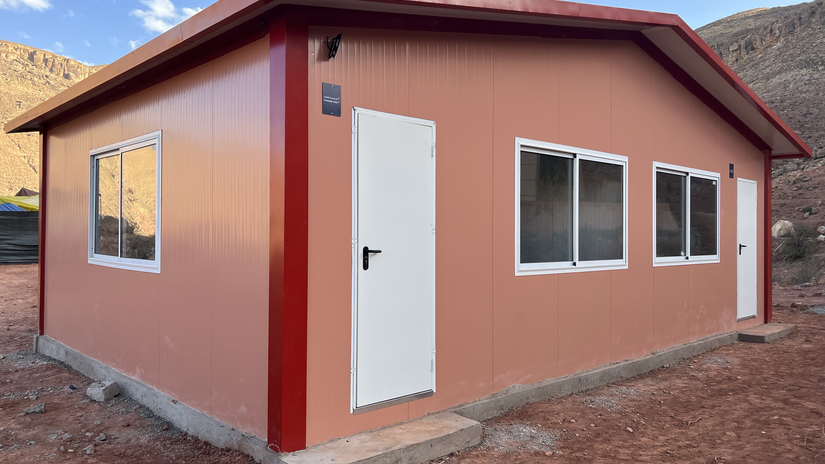
Working along with local communities and with support from the IFRC emergency appeal and partner National Societies, the MRCS built washrooms with toilets and bathing facilities like this one to help the families stay healthy.
Photo: Justine Touaux/IFRC
The earthquake also left families in many villages like Ighermane without toilets, access to running water or facilities to bathe or do laundry.
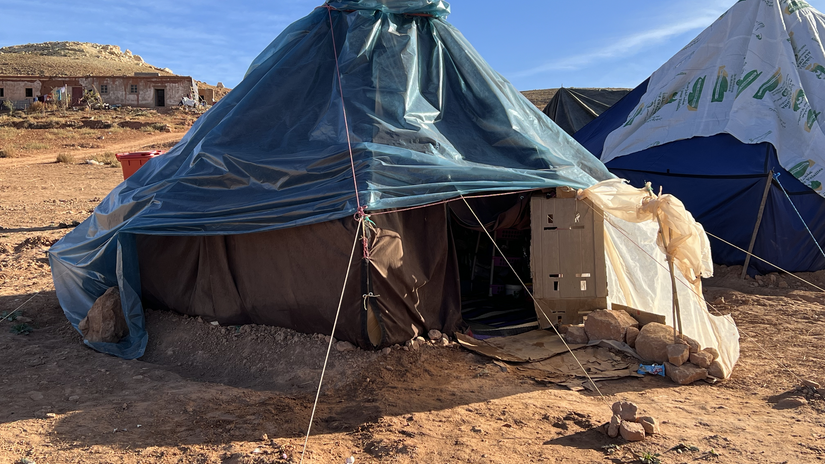
Located only a few kilometres away from the epicentre of the earthquake, the village of Tagadirt was entirely destroyed, leaving more than 60 families to live in tents.
Photo: Justine Touaux/IFRC
Red Crescent teams also worked with community members in many places such as Tagadirt, which was nearly completely destroyed by the quake, to install latrines, showers and more water points to improve living conditions for people who lost their homes.
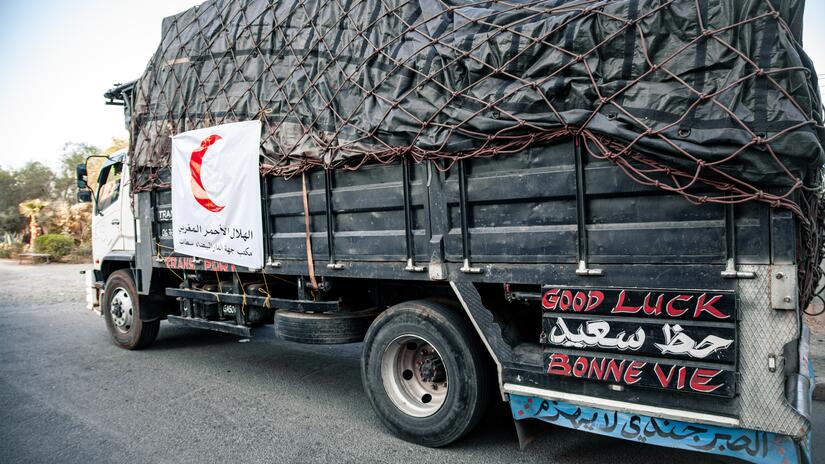
A fully laden MRCS truck heads to the province of Al Haouz, where various critical supplies were delivered to the remote village of Tajgalt, 2100m above sea level.
Photo: IFRC
Since the earthquake struck, hundreds of supply trucks — full of tents, blankets, mattresses, jericans, clothes and food — have been dispatched to the earthquake-affected provinces of Al Haouz, Chichawa and Taroudant. The IFRC and the MRCS continue to engage with communities, to listen to their needs so they can offer the most effective recovery support.
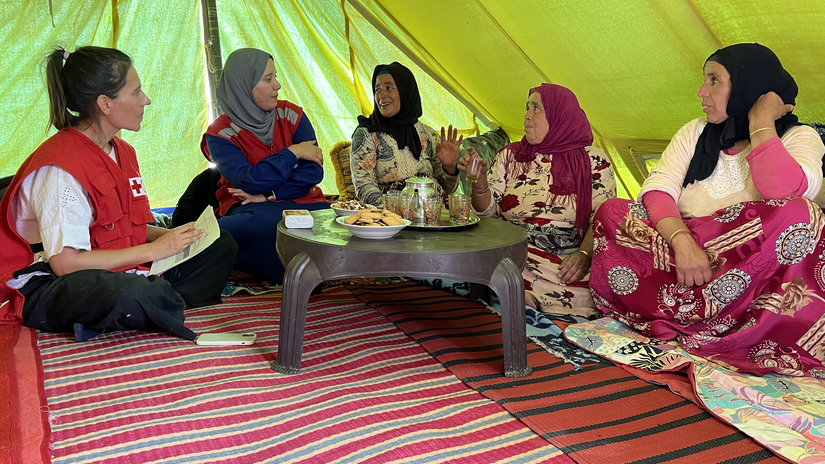
IFRC Community Engagement and Accountability coordinator Monica Posada and Moroccan Red Crescent volunteer Maryam Chtitihi talk with women from the village of Tagadirt to ensure they have a central voice as their community charts its path toward recovery.
Photo: IFRC
The IFRC and MRCS continue to listen to the people of the Atlas Mountains in order to help them weather the winter, prepare for potential future shocks, and ultimately to get back to life as it was before this catastrophic quake.

